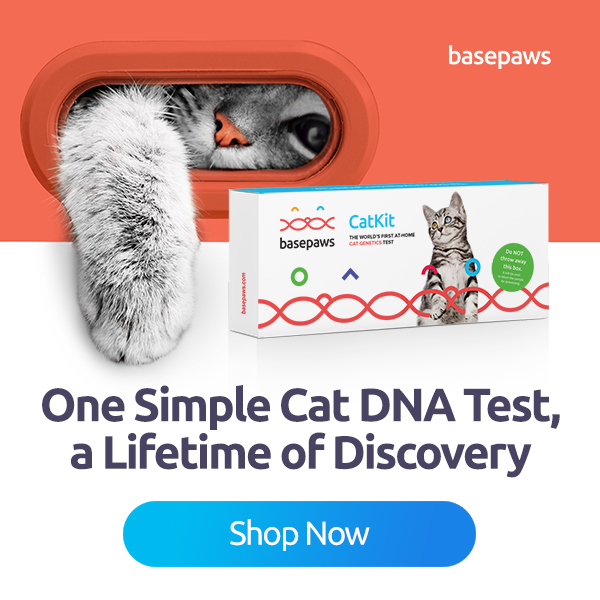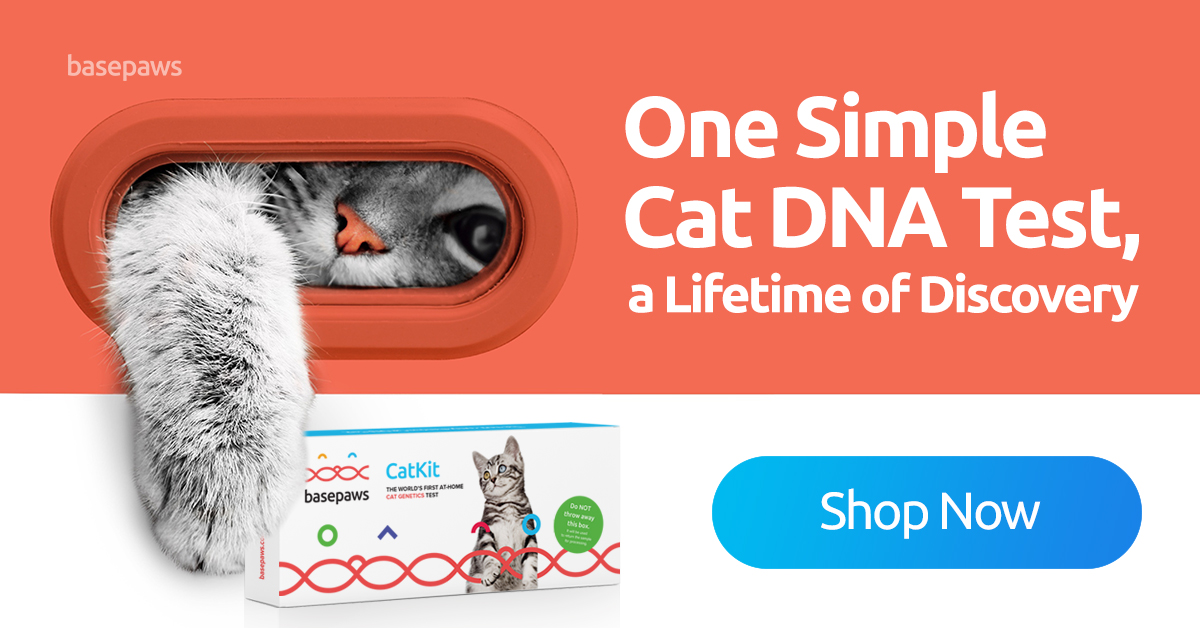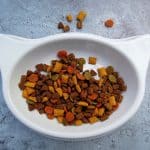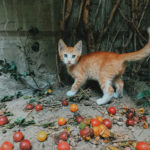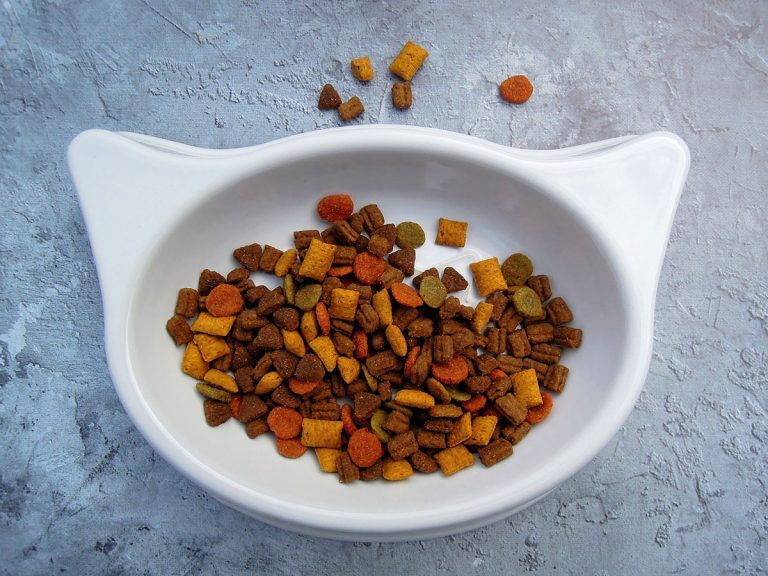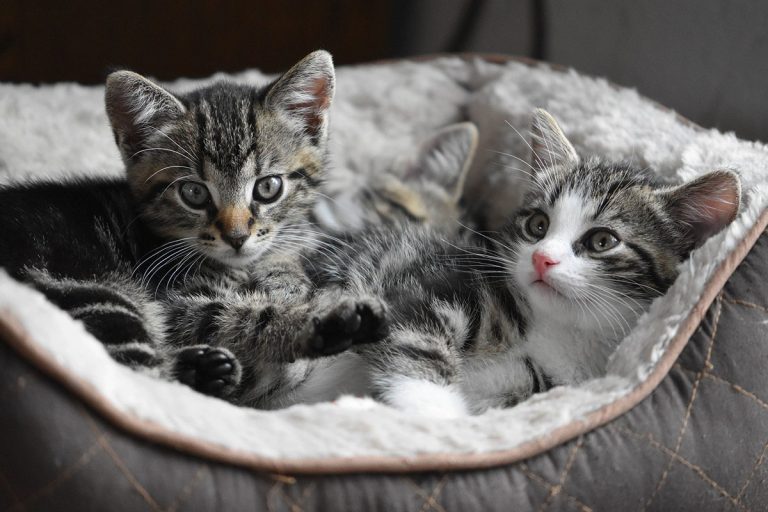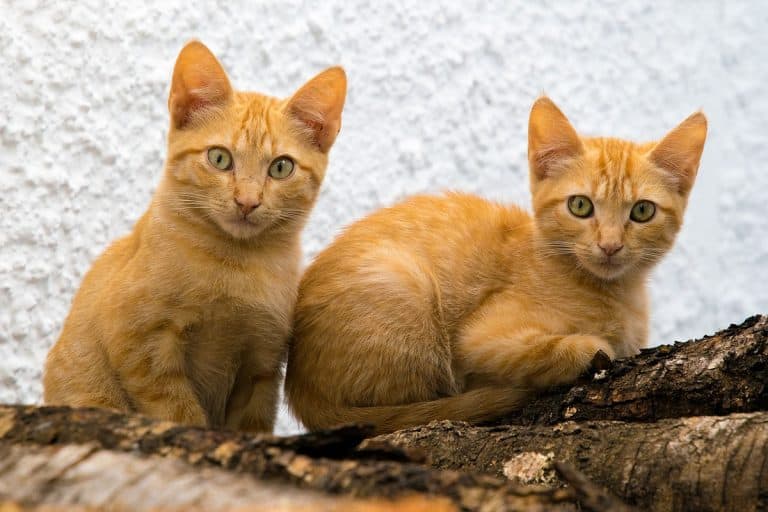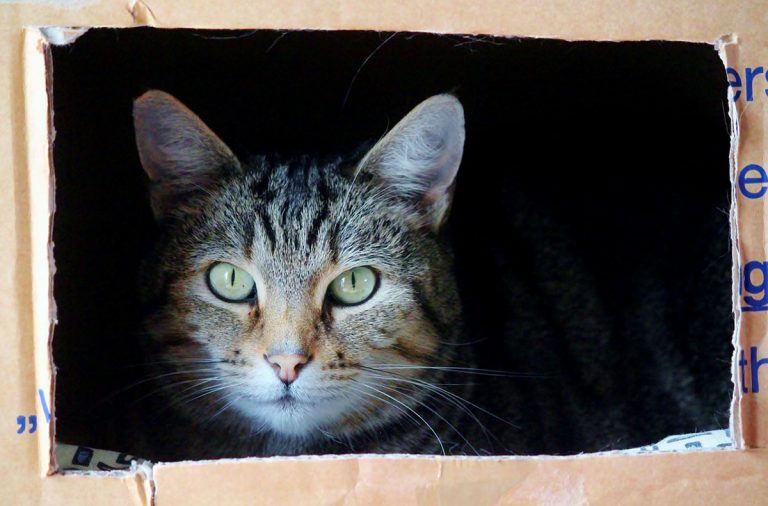When you are taking care of multiple pets, including cats and dogs, your pet food bills are likely stacking up quickly. You might be tempted in a situation like this to give all of your pets the same, more affordable food to save yourself some money. After all, they are all animals, they should fare well on the same diet, right? Is dog food bad for cats, really?
Cats and dogs are both animals, yes. Mammals, even, just like us. But that doesn’t mean that our dietary needs are all the same. In fact, there are a lot of foods we can eat without problems that are outright poisonous to cats. Similarly, dog food has a different nutritional profile from cat food, and one cannot simply be swapped for the other.
DISCLAIMER: This post may contain affiliate links. If you click one of these links and decide to make a purchase, we may receive a small commission. This comes at no extra cost to you and helps to keep the site alive and up to date. If you want more information, please review our Privacy Policy. Thank you for your support!
Are Cats And Dogs The Same Species?
You are not crazy for thinking that it might, though. For a long time, scientists doing research into animals, and their nutritional needs and diseases, considered cats and dogs to be more or less the same. As a consequence, results from studies on dogs were used to design diets and treatments for cats with little to no scrutiny for their actual appropriateness for felines. Sadly, this has created a lot of misconceptions surrounding feline health and nutrition in both pet owners and veterinarians, and our cats have been paying the price for it.
The fact is that cats and dogs are distinct species. They do share a common ancestor, but this ancestor is very far up the evolutionary tree and lived about 42 million years ago. The cats and dogs we know nowadays have significantly different genomes that affect their biology.
Is Cat Food Good For Cats?
Fortunately, over time scientists have started to pay more attention to the biological difference between cats and dogs. A great example of this can be found in research into chronic kidney disease, which is an illness that affects both species equally. Dogs are considered to be in renal failure with only a short while to live when their creatinine level rises above 2.5. Veterinarians have long since used this same threshold of 2.5 to diagnose kidney failure in cats, under the assumption that both animals function similarly.
However, more recent studies have shown that cats actually don’t go into renal failure until their creatinine level rises to about 5.0-5.5. Until that point, they are in a state of renal insufficiency, which is also bad, but arguably less severe and requires a different treatment than full-blown kidney failure. Nevertheless, the diets your vet is likely to prescribe for a cat with CKD, at any stage of the disease, are still largely based on dog-centered research. As are most commercial cat foods. So, in a way, you’re already feeding your cat dog food.
Related Post: Best Dry Food For Cats With Kidney Disease
Read our review of the top 5 most biologically appropriate dry cat foods for CKD to find the best dry food for cats with kidney disease in your pet family.Is Dog Food Bad For Cats?
To make it absolutely clear: this does not mean that you can actually feed your cat dog food. Food produced for dogs is definitely not suitable for cats. Although we still have a lot to uncover about feline nutrition and the cat food available at your local supermarket might not be entirely appropriate for cats, you can rest assured that it has been adjusted to more accurately meet the nutritional needs of cats instead of dogs. If you really are strapped for cash, a budget cat food is still a better choice than resorting to feeding your cat dog food.
Why Is Dog Food Bad For Cats?
The main difference between cats and dogs in terms of nutrition is that cats are obligate carnivores and dogs are somewhere between carnivores and omnivores. Both species need to eat meat to stay alive. Dogs, however, can also digest carbohydrates, which cats cannot.
In practice, this means that dogs can sustain themselves on a diet that is part meat and part plants, fruits and vegetables. Cats, on the other hand, need meat and meat alone to survive. Keep that in mind next time you look at a cat food label, and you’ll understand why we’re inclined to call it dog food.
This difference plays a key role in understanding, for instance, why traditional kidney diet cat foods are actually bad for cats. Dogs with kidney disease are helped by lowering their protein intake, because protein waste products are damaging to the kidneys. These proteins are logically replaced with carbohydrates, which is fine for dogs.
Related Post: Can Cats Survive On A Vegan Diet?
Can cats survive on a vegan diet? In short: no. Read this article to learn about the risks associated with vegan diets for cats and why cats can’t be vegan.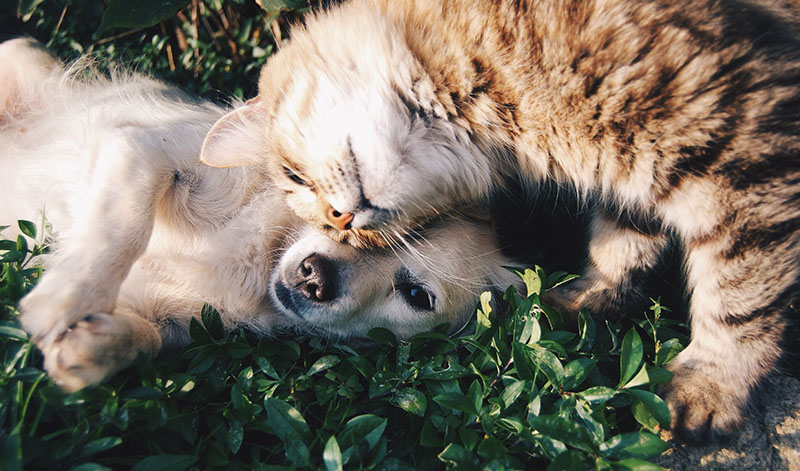
The same logic has been applied to kidney diets for cats, and a lot of veterinarians are still using this exact argument when determining treatment plans for CKD cats. But, as we’ve learned, cats can’t digest carbs. When you take away their much needed animal protein they start wasting away, effectively using up their own muscles for sustenance, until they perish. Not from kidney disease, but from being underfed.
The better strategy, as it turns out, is to feed cats a lean, high protein diet that gives them the strength to stay fit and healthy. Ultimately, this gives them a better chance to fight off any secondary ailments and greatly increases their quality of life.
Related Post: Chronic Kidney Disease In Cats: Symptoms And Treatments
Does your cat suffer from CKD? Read our guide on chronic kidney disease in cats to learn everything you need to know to increase her quality of life.Is Cat Food Bad For Dogs?
Considering what we know about the nutritional needs of cats versus dogs and how this has shaped the development of commercial cat foods, it is safe to say that cat food is less bad for dogs than dog food is for cats. If you have a multi-pet household and your dogs occasionally snack on the cat’s food, it’s not an immediate cause for concern.
That said, we do not recommend giving cat food to dogs as their daily meal. Cats and dogs have significantly different metabolisms, which not only affect their energy uptake, but also the vitamins and minerals they need to stay healthy. Feeding any pet a food that is biologically inappropriate for them can have devastating consequences in the long run.
Related Post: Complete Guide To Feline Nutrition: What Should I Feed My Cat?
Ever wondered: "What should I feed my cat?" Read our complete guide on feline nutrition to learn about the best diet for your cat.Biologically Appropriate Food For Cats
The best diet for cats is one that matches their nutritional needs as closely as possible: high in lean animal protein with minimal plant-based filler ingredients. Freeze-dried cat foods and raw dehydrated cat foods are your best choice, since they tend to contain only animal ingredients. The downside is that these types of cat food can be a bit pricey.
Related Post: Best Freeze Dried Food For Cats
Our number 1 recommendation for the best freeze dried food for cats is Stella & Chewy's Freeze Dried Chicken Dinner Morsels. Read our review to find out why.A great alternative for conscious cat owners on a budget is to find a freeze-dried coated kibble that your cat likes. These types of dry food for cats do contain some grains or vegetables, but it’s generally a lot less than traditional kibble and also offset by a high amount of animal protein. Many cat owners report significant improvements in their cat’s overall health and appearance after switching from grain-based dry food to freeze-dried coated cat food.
Please keep in mind that finding the right food for your cat is likely going to require some compromise on your part. Regulations on pet food are minimal at best, and rarely actively enforced, so pet food companies pretty much have free reign when it comes to what they put in their products, or the claims they make about them. It is up to us to educate ourselves about what is right for our cats.
If you don’t know where to start, you can consult our Cat Food Database to compare 1000+ commercially available cat foods and treats on their ingredients and their nutritional values. If you can’t find a cat food that completely matches your cat’s dietary requirements, consider giving your cat supplements with vitamins, minerals and antioxidants to balance things out. Taking your cat to the vet for a checkup at least once a year will help to keep track of their health and catch any diseases early.

